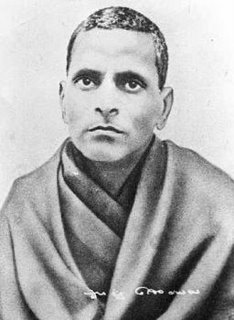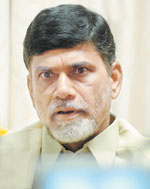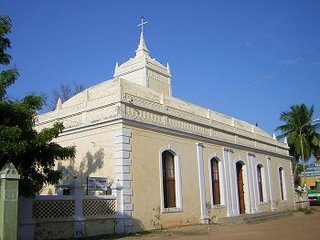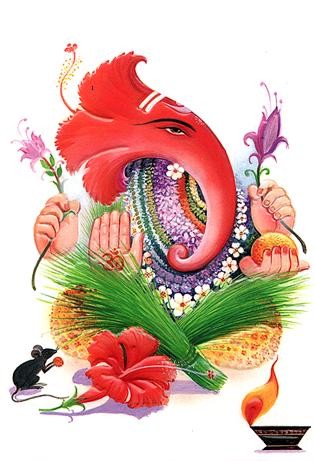Golden glow and the glorious uncertainty
A fabulous 50 for Andhra Pradesh. From the days of the demand for separate Andhra State in Bapatla in 1913 to separate Telangana cry now, it's been a golden ride full of sacrifices, compromises and uncertainties. Notwithstanding regional imbalances, political compulsions and , the State continues to be on the path of growth
 ONE FOR THE ALBUM: First Chief Minister of Andhra Pradesh Neelam Sanjeeva Reddy and his Cabinet colleagues with Governor S.M. Srinagesh at Raj Bhavan on September 7, 1962.
ONE FOR THE ALBUM: First Chief Minister of Andhra Pradesh Neelam Sanjeeva Reddy and his Cabinet colleagues with Governor S.M. Srinagesh at Raj Bhavan on September 7, 1962.On this day, 50 years ago, formation of Andhra Pradesh ushered in linguistic re-formation of States, a process actually set in motion when Andhra was carved out of Madras province in October 1953.
Though formation of linguistic states was the avowed policy of the Indian National Congress, Prime Minister Jawaharlal Nehru and some other national leaders feared that such division in the early years of independence would retard the process of integration of States. But the supreme sacrifice by Potti Sriramulu for Andhra State, after his epic 56-day fast, forced them to rethink.
Today, Andhra Pradesh, as an integrated State, is in a quandary. The demand for separate Telangana continues to be vociferous. An occasional voice for Rayalaseema too. Will the State disintegrate and when? Every Congress leader in the State asserts that UPA chairperson Sonia Gandhi has been striving for a consensus on Telangana and will take a decision at an appropriate time. Consensus is an elusive objective and there can be no time limit to achieve it.
`Visalandhra' dream
Historically, Andhra Pradesh consists of three distinct regions — Telangana, Rayalaseema and Coastal Andhra. Integration of the three regions has not been smooth as they lacked mutual trust from the very beginning of the efforts to form a united Telugu State, which Communists and older generation leaders called `Visalandhra.' Stalwarts, who favoured this concept, temporarily overcame such difficulties through political agreements — the Sri Bagh pact between Rayalaseema and Coastal region and the Gentlemen's Agreement between Telangana and Coastal Andhra. These agreements were, unfortunately, observed more in the breach.
The State witnessed two separatist movements — the first in Telangana (1969) and the second in Coastal and Rayalaseema areas (1971), resulting in the loss of hundreds of lives and huge destruction of public property. A fresh movement is on for separate Telangana, this time on non-violent lines.
The movement reached a crucial stage when its leader K. Chandrasekhar Rao resigned his Karimnagar Lok Sabha seat. Mr. Rao's Telangana Rashtra Samithi has declared that the result of the Karimagar byelection will be a referendum on Telangana. Ms. Gandhi will certainly have to reckon with the outcome of the byelection.
Opinions and policies do change and convictions become accommodative with new situations. This was the Congress party's tradition too. Commenting on Potti Sriramulu's fast, Nehru said: "Fasts have no place in the politics of a free country." But he conceded separate statehood for Andhra when large-scale violence broke out in the wake of Sriramulu's martyrdom in 1952.
Indira Gandhi, who firmly opposed the demand for separate Telangana, was prepared to "talk on any proposal short of separation to resolve the tangle" but managed the situation with six-point and eight-point formulae and change of Chief Ministers.
Everyone knew Indira Gandhi's views, as her stance was transparent. While many leaders are quoting Ms. Sonia Gandhi, she herself has never confirmed or denied them and maintains an enigmatic silence.
The history of the movement for linguistic states can be traced to 1913 when the demand for Andhra State was first voiced at the Andhra conference held in Bapatla. National leaders took note of the sentiments when the issue figured repeatedly in the Congress' plenary sessions. After four decades of struggle, Andhra State was formed in 1953. Meanwhile, Andhras, a synonym for Telugu-speaking people, living in Telangana began organising Andhra conferences.
When the Nizam's rule ended in 1948, the issue of a united Telugu State was debated among the Andhra leaders of Telangana. The feelings became intense after the Andhra State was formed. Some favoured Visalandhra and some, separate statehood. The States' Reorganisation Commission headed by Justice Syed Fazl Ali was convinced that the demand for separate Telangana was stronger than the one for merger with Andhra State. It, therefore, recommended a five-year separation for Telangana before considering Visalandhra. Ever since then, the demand for Telangana has persisted, despite one section favouring continuance in Andhra Pradesh. From Nehru to Indira Gandhi, national leaders have been opposed to the concept of more than one State for one linguistic group, barring the Hindi belt. Whenever the separatist demand was raised, they succeeded in effecting political compromises. It needs to be recognised that only leaders but not people have been compromising on the issue. What percentage of Telangana people are in favour of separation? Will the large Muslim population of the twin cities insist on Union Territory status for the capital? These are issues generally avoided in public debates. Thirteen leaders have held the position of Chief Minister before present incumbent Y.S. Rajasekhara Reddy. The demand for separate Telangana in the form of assertion of rights of the region have been coming up whenever a non-Telangana leader except N.T. Rama Rao was Chief Minister.
The secret of NTR's popularity and success lay in his speeches, which reflected his deep love for Telugu language and culture. He gave them priority in all his major interactions with the public. It is noteworthy that finally people did not overthrow him but his own party did.
The progress thus far...
The State's progress in the last 50 years cannot be underrated though it has not been uniform, region-wise. Life expectancy now is 62 years, slightly higher than national average. Literacy is 61 per cent; infant mortality rate has come down to 55 per thousand; 80.1 per cent of households (in 2001) have access to safe drinking water against 25.9 per cent in 1961 and there is no shortage of foodgrains.
Large irrigation projects like Nagarjunasagar and Sriramsagar have transformed agriculture. Whenever the Srisailam and other hydel reservoirs are full, the State has surplus power while the demand is ever increasing. The number of universities, including the three coming up this year, deemed universities, research and other institutes of national importance has risen to 31 against only three universities in 1957 — one in each region.
The Gross State Domestic Product has been steadily growing — 7.55 per cent when compared to 6.39 per cent the previous year though short of the Vision-2020 target. Per capita income, too, is growing. Thanks to the software boom, Andhra Pradesh has emerged as a knowledge hub. Hyderabad city is growing in all directions and the talk of a `happening city' continues to attract investors from India and abroad.
On the negative side, the rise in public debt from Rs.142 crores in 1957 to Rs.82,720 crores this year is a matter of concern. The present Government has devised a new strategy to wriggle out of the debt trap. While agricultural production is going up, the lot of farmers is worsening. Agricultural prices are fluctuating with no control by Government agencies. Another alarming trend is the increasing disparities in income.
Regional imbalances
Jalayagnam, agricultural regeneration and other programmes, if successfully completed, loopholes and hurdles notwithstanding, may result in substantial development of the State. But the regional imbalances, at least in some sectors, are unlikely to vanish; nor will the demand for separation. The issue is more sentimental and no short-cut solutions will work. Only a switch in people's mindset can alter the situation. Barely a year-and-a-half after the State's formation, then Chief Minister Sanjeeva Reddy said in the Assembly in 1958: "If you so desire, do your best to throw us out but please do not whip up Andhra-Telangana feelings." Subsequently, every Chief Minister, barring one, faced similar situations and Dr. Rajasekhara Reddy is no exception. The saga continues. So does Ms. Gandhi's enigmatic silence. The future of Andhra Pradesh continues to be uncertain and it does no good to people of any region, much less the State.
Ex-Editor, Andhra Prabha
<15,,,0>Potturi Venkateswara Rao,
Courtesy: The Hindu










